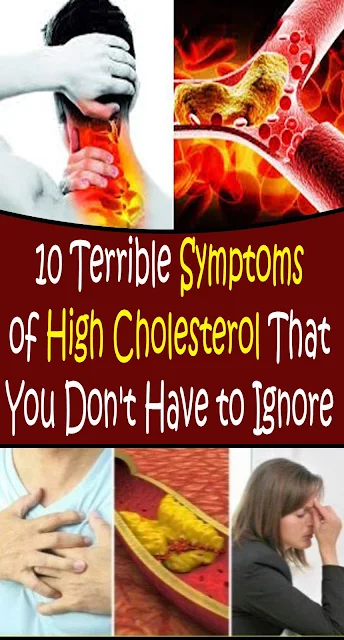High cholesterol is a condition that affects millions of people worldwide, and it is one of the leading causes of heart disease, stroke, and other cardiovascular conditions. Cholesterol is a type of fat that is found in your blood, and having high levels of it can cause plaque buildup in your arteries, leading to blockages and ultimately resulting in heart disease. Unfortunately, high cholesterol often goes undetected until it leads to serious health problems.
High cholesterol is often referred to as the "silent killer" because it does not typically cause any noticeable symptoms until it is too late. This makes it crucial for individuals to be aware of the potential signs of high cholesterol and take the necessary steps to prevent it. With the proper knowledge and proactive steps, you can detect high cholesterol early and take the necessary steps to manage it.
In this article, we will discuss ten symptoms of high cholesterol that you should never ignore. If you are experiencing any of these symptoms, it is important to consult your doctor immediately. By paying attention to the signs of high cholesterol and taking the necessary steps to manage it, you can reduce your risk of heart disease, stroke, and other cardiovascular conditions, and improve your overall health and well-being.
Chest pain and discomfort: Chest pain or discomfort is a common symptom of high cholesterol. This can occur when there is a blockage in the arteries that supply blood to your heart, leading to angina or a heart attack.
Shortness of breath: High cholesterol can cause shortness of breath, especially during physical activity. This can occur due to a lack of oxygen supply to the heart and other organs.
Numbness or weakness: High cholesterol can lead to numbness or weakness in the arms and legs, which can be a sign of peripheral artery disease (PAD).
Headaches: People with high cholesterol may experience headaches due to the lack of oxygen supply to the brain.
Blurred vision: High cholesterol can lead to blurred vision or even temporary vision loss. This occurs when the arteries in the eyes become blocked, leading to retinal damage.
Fatigue: High cholesterol can cause fatigue or a lack of energy due to the lack of oxygen supply to the muscles.
Digestive problems: High cholesterol can cause digestive problems, including abdominal pain, nausea, and vomiting.
Skin problems: High cholesterol can lead to the formation of yellowish bumps on the skin known as xanthomas. These are deposits of cholesterol that can occur in the tendons, elbows, knees, hands, and feet.
Memory loss: High cholesterol can lead to memory loss and other cognitive problems due to reduced blood flow to the brain.
Erectile dysfunction: High cholesterol can cause erectile dysfunction, which is the inability to achieve or maintain an erection.
If you are experiencing any of these symptoms, it is important to consult your doctor immediately. Your doctor may recommend lifestyle changes such as a healthy diet, regular exercise, and medication to manage your cholesterol levels. Early detection and treatment of high cholesterol can help prevent serious health problems and improve your quality of life.
In conclusion, high cholesterol is a serious health concern that can lead to life-threatening illnesses. By paying attention to the symptoms listed above, you can detect high cholesterol early and take the necessary steps to manage it. Remember, prevention is always better than cure, so make sure to maintain a healthy lifestyle and get regular check-ups to keep your cholesterol levels in check.

